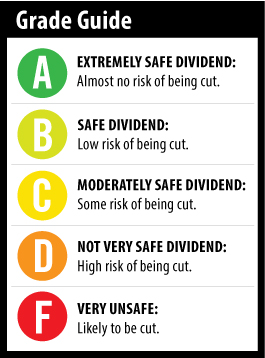 This week, we’re back to a dividend battle between two companies that have histories going all the way to the mid-1800s.
This week, we’re back to a dividend battle between two companies that have histories going all the way to the mid-1800s.
They have each raised their dividends every year for at least three decades. They are both Dividend Aristocrats and have yields over 5%.
Ladies and gentlemen, introducing to you the heavyweight battle between Altria (NYSE: MO) and AT&T (NYSE: T).
Ma Bell, as AT&T used to be called, is currently a recommendation in The Oxford Income Letter.
[ad#Google Adsense 336×280-IA]It yields 5.3% and has raised its dividend for each of the 30 years it has been in existence as a separate company.
Prior to that, AT&T was a monopoly that included the regional, or Baby Bell, companies.
The federal government broke up the company in 1984.
AT&T reported first quarter earnings last week.
Earnings per share were $0.71, up 11% over last year.
Revenue of $32.5 billion climbed 3.6%. Good numbers.
But as always, I’m more interested in cash flow to see if the company is generating enough cash to pay the dividend.
In the first quarter, AT&T generated $3 billion in cash flow. For the full year, it said free cash flow will be approximately $11 billion.
In 2013, free cash flow totaled $13.9 billion, while the company paid out $9.7 billion for a payout ratio of 70%, within my comfort zone of 75% or lower.
Dividends paid (though not dividends per share) will likely decline slightly as the company still has 426 million shares left in a repurchase program. If we assume dividends paid will fall to $9.5 billion as a result of fewer outstanding shares, that’s still a payout ratio of 86%.
Considering AT&T’s huge amount of finance muscle, I don’t suspect that will be a problem. Nevertheless, I would prefer the payout ratio to be below 75%. Free cash flow is not expected to return to last year’s levels until 2016.
Considering the 30-year track record of annual dividend raises, even with the elevated payout ratio, I think there is almost no chance the company cuts the dividend in the near future.
Dividend Safety Rating: A
Tobacco company Altria started off as Phillip Morris. In 2003, Phillip Morris rebranded the company as Altria and later split the international business into a separate company called Phillip Morris. Altria primarily sells products in the United States.
There’s always some risk in tobacco stocks as stricter regulations are constantly being proposed and approved. But Altria and other tobacco companies continue to sell a lot of product and generate huge cash flows.
Last week, Altria reported first quarter earnings. Earnings per share rose nearly 6% and the company boosted its full year EPS guidance by $0.02.
In the first quarter, Altria’s free cash flow was $2.1 billion. The company has very low capital expenditures, which makes it easier for cash flow from operations to become free cash flow. The formula for free cash flow is cash flow from operations minus capital expenditures.
In 2013, Altria’s free cash flow was $4.2 billion while the company paid out $3.6 billion in dividends for a payout ratio of 85%. That’s lower than the 90% payout ratio from 2012 and 93% in 2011.
The payout ratio is higher than I like it to be, but it is at least moving lower.
This year, free cash flow is projected to rise to $4.9 billion.
 Dividends paid has been going up roughly $200 million per year over the past few years.
Dividends paid has been going up roughly $200 million per year over the past few years.
If we assume that this year the company pays out $3.8 billion in dividends, the payout ratio will be 77.5%, which is closer to my comfort level of 75%.
Going back to its days as Phillip Morris, Altria has raised the dividend every year since 1969 – about the time Neil Armstrong became the first person to walk on the moon.
I’d be inclined to rate Altria a little bit lower, except for its outstanding track record and the fact that the payout ratio is moving in the right direction.
I can’t imagine the company jeopardizing a 44-year track record of annual dividend raises by cutting the dividend, particularly when cash flow is rising.
Dividend Safety Rating: A
Ladies and gentlemen, we have a draw.
Thanks to Gibor for the suggestion of this epic battle.
— Marc Lichtenfeld
[ad#DTA-10%]
Source: Wealthy Retirement

